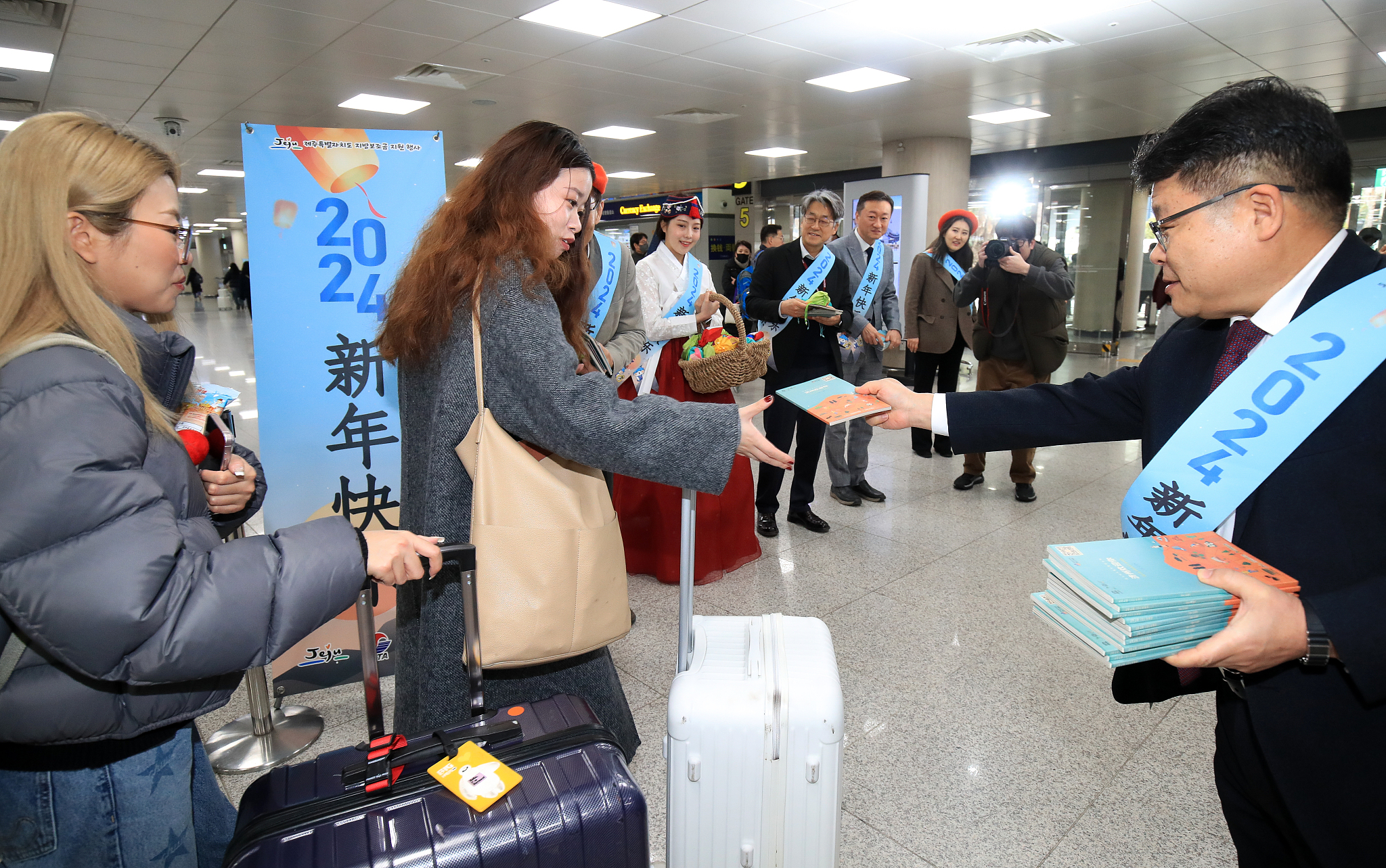'Visa-free Era' Shows China's Serious about Opening up

Chinese tourists from Shanghai arrive at South Korea’s Jeju International Airport during the Spring Festival holiday on February 8. (PHOTO: VCG)
With the 30-day mutual visa exemption between China and Singapore taking effect for ordinary passport holders on Chinese Lunar New Year's Eve or Chuxi, China is implementing unilateral and mutual visa-free policies for a larger circle of friends, ushering in a “visa-free era” that includes more and more countries.
According to the National Immigration Administration's estimation, the Chinese mainland has seen a daily average of 1.8 million inbound and outbound passenger trips during the Spring Festival holiday this year, nearly 3.3 times larger than last year's figure.
Data from Fliggy, China’s Leading Online Travel Platform, showed that outboundtravel bookings during the 2024 Spring Festival holiday hit a four-year high, surging almost 10 times year-on-year.
From December 2023, citizens of France, Germany, Italy, the Netherlands, Spain and Malaysia were allowed visa-free entry to enter China for up to 15 days.
In January 2024, along with the five European countries, Irish and Swiss nationals will now be allowed to enter China without a visa.
The trial program will be effective for one year, with the aim of “encouraging more people to visit for business and tourism,” the Associated Press reported.
According to official data from China’s Ministry of Foreign Affairs, China has signed mutual visa exemption agreements with 157 countries to date, covering different types of passports, reached agreements or arrangements to simplify visa procedures with 44 countries, and enjoyed comprehensive mutual visa exemption with 23 countries, including Thailand, Singapore, the Maldives and the UAE. In addition, over 60 countries and regions offer visa-free or visa-on-arrival policies to Chinese citizens.
All these measures increasingly make Chinese citizens’ outbound trips easier, and help foreigners travel, work, study and live in China more conveniently, and are being well received by the international community.
According to Euronews, last year saw a surge in interest in China as a tourist destination among Europeans. Data from Chinese online travel agency Trip.com showed a 663 percent increase in overall bookings from Europe to China compared to 2022, an almost 29 percent increase in 2019.
The visa-free era is also generating positive effects. “Greater opening-up measures would shore up confidence and encourage investment in the country at a time when both are highly sought after,” said the South China Morning Post.
In a statement, the EU Chamber of Commerce in China called the move a “tangible and practical improvement which will also increase business confidence,” with the hope that more European nations would be given visa-free access soon.
Josep Maria Gomes, an international business developer with the Barcelona Chamber of Commerce in Spain, said that China has always been a focus, "That's always in our internationalization plans. It's not only a country with great potential, [being ahead of us] in some technologies, but a country where our companies must seek [a]presence," said him.
Meanwhile, the executive director of the UN World Tourism Organization said that China’s visa-free policies will help the global tourism industry recover and China’s booming tourism industry will lead neighboring countries to prosper together.
Improving visa policies and facilitating cross-border travel is an important measure, through which the diplomatic service contributes to China’s high-quality development and high-level opening-up. This brings more opportunities for deepening friendly exchanges and mutually beneficial cooperation between China and other countries, said China’s Ministry of Foreign Affairs.






